Oct 19 to Oct 25
Ma Yi-kung (馬以工) sighed a breath of relief after the March 1981 meeting to “decide the final fate” of the mangrove forests of Tamsui.
Even though then-premier Sun Yun-suan (孫運璿) had announced a year earlier that the Executive Yuan would pledge to protect the forest, the Water Resources Agency still insisted on razing them to build public housing. In June 1980, the forests suffered a serious blow when unscrupulous developers cut down over 30,000m2 of the plants, and experts rushed in to reverse the damage.
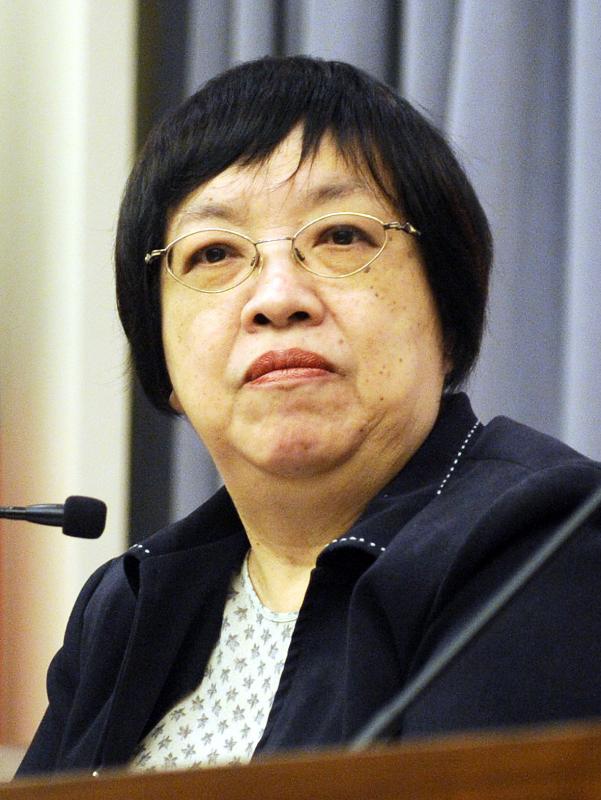
Photo: Chu Pei-hsiung, Taipei Times
Sun had announced on Oct. 22, 1980 that the government would protect the forest, but the Water Resources Agency refused to back down until that final meeting.
“Especially considering our national power today, there is no need for us to destroy a stable ecosystem just for a little economic benefit,” Ma writes in the 1983 book We Only Have One Earth (我們只有一個地球), coauthored with her high school classmate and fellow activist Han Han (韓韓). “Today’s results bring at least a ray of hope to the future of Taiwan’s ecological conservation.”
This was a year before the government established an environmental protection bureau, and Ma writes that at that time there were no laws enforcing environmental protection.
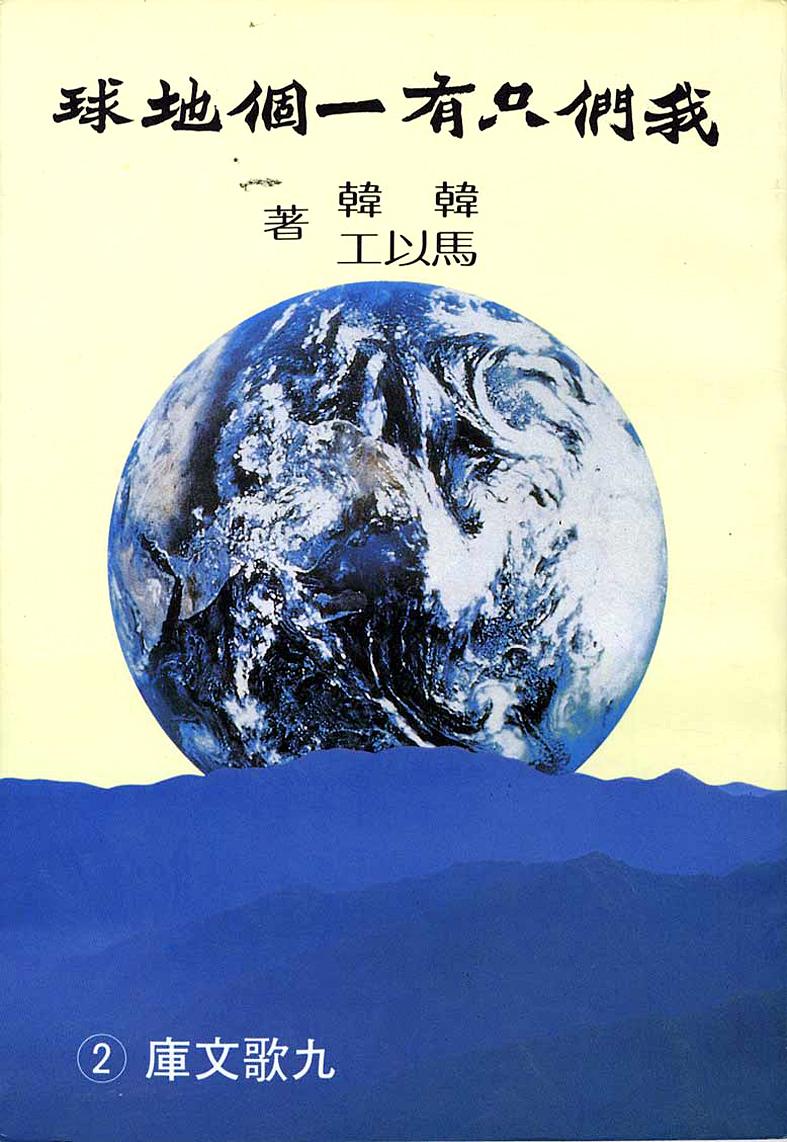
Photo courtesy of National Taiwan Museum
“Only in the past 10 years have people started paying attention to ecology, and began considering our relationship with nature,” she writes. “Most people still judge these issues by values such as the usefulness of the mangroves. Can we eat them? Can we use them as fuel? Can we use them to fight cancer? It seems like things only have the right to survive if they have any use for humans.”
Today, Ma and Han are considered pioneers of Taiwan’s environmental conservation efforts. Even so, attempts to develop the mangroves continued until 1986, when the government finally established the Tamsui River Mangrove Nature Reserve (淡水紅樹林保護區) to ensure the ecosystem’s preservation.
PRECIOUS FOREST
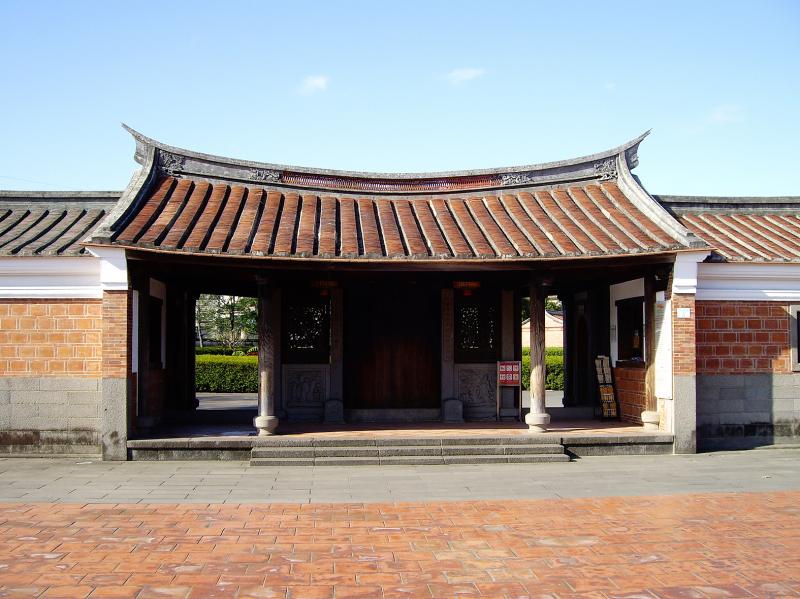
Photo courtesy of Wikimedia Commons
According to the Taiwan Environmental Information Association, experts still don’t agree on whether today’s mangroves are native to Tamsui. Those that support the theory maintain that as early as the 1600s, Spanish colonizers in northern Taiwan record seeing many mangrove forests in the area. The Europeans traded mangrove bark with the Ketagalan Aborigines because they were useful in treating malaria.
Noted naturalist Robert Swinhoe also recorded seeing mangrove forests when he arrived in 1862, and fellow Englishman Richard Oldman also collected mangrove specimens in Tamsui when he visited in 1864.
Still, others such as Japanese botanist Shunichi Sasaki writes in a report that the original mangroves of northern Taiwan were extinct by the early 1900s and the existing ones were imported from China. Sasaki discovered records stating that in 1920, a Chinese businessman planted mangroves next to his residence along the Tamsui river to protect his home from the waves during typhoons.
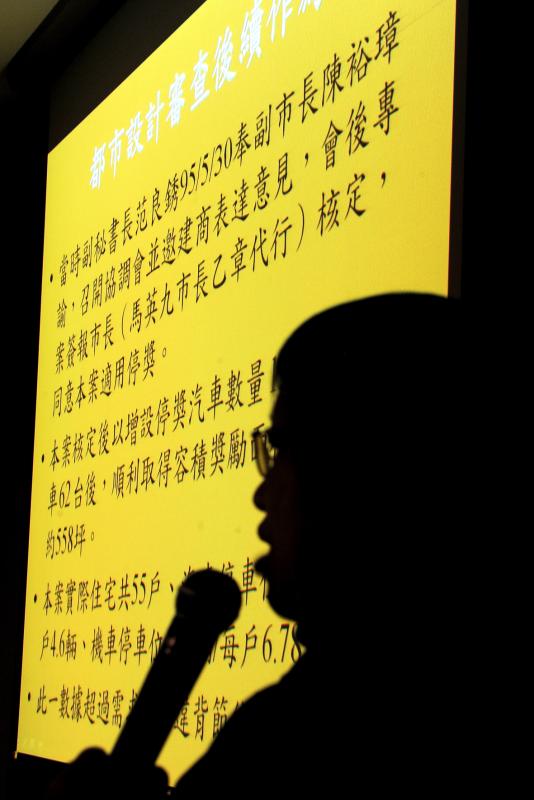
Photo: Chu Pei-hsiung, Taipei Times
“No matter the origin of the mangroves, it does not contradict the fact that Tamsui’s mangrove forest was the first significant issue in Taiwan’s history of environmental conservation,” the report concludes.
The mangrove forests in southern Taiwan, however, are definitely not native as they were planted as a natural barrier in the 1950s to protect Taiwan’s shores.
Ma was born in 1948 in Taipei. She became concerned about the environment while studying architecture at Chungyuan Christian University: “‘Be responsible to the environment’ was the first concept I learned there,” she tells Taiwan Panorama in a 1983 article. “If an architect cannot understand this, then we might destroy the greater environment when trying to create a small environment.”
This belief strengthened during her studies in the US, and when she returned in 1975 she became alarmed by the rapid development and expansion of her hometown. In 1976, she took a job at the Tourism Bureau, where she played a crucial part in saving cultural relics such as the Lin An Tai Historical House (林安泰古厝), which was eventually relocated and remains intact today. She was also instrumental in the preservation and restoration of the Lin Family Gardens (林家花園) in New Taipei City’s Banciao District.
WRITING WITH PURPOSE
Ma began writing about the environment in 1979, and in 1981 the United Daily News (聯合報) “boldy allowed” her and Han to pen a regular environmental column. Their very first piece discussed the mangrove forest.
The duo won “best column” at the 1982 Golden Tripod Awards, the highest honor in Taiwan’s publishing industry. This brought more attention to her mission, and a year later she also claimed the Wu San-lien Literary Award.
Ma continued working for the Tourism Bureau, and participated in the planning of Taiwan’s first national park (Kenting, 墾丁) which was established in 1984, while advocating for numerous environmental and cultural protection issues over the next few decades. She was eventually appointed a member of the Control Yuan.
Her mission was not easy in those days, as she gained many haters for writing about various environmental and health scandals. Although she was not often on the frontlines, she played her part in a wide range of movements in the 1980s and 1990s, from anti-nuclear to anti-pollution to anti-smoking.
She writes in the 1987 book Not Backing Down Even One Step (一步也不讓): “Over these years, I’ve been threatened and tempted by those whose interests I came into conflict with, and some have threatened to take me to court if I did not stop criticizing them. Many accuse me of being a busybody who has nothing better to do.”
The title of the book says it all.
Taiwan in Time, a column about Taiwan’s history that is published every Sunday, spotlights important or interesting events around the nation that either have anniversaries this week or are tied to current events.
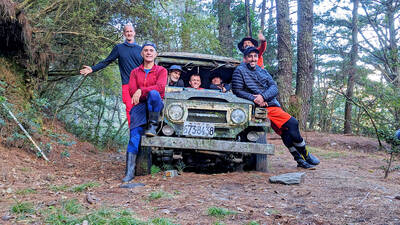
The year was 1991. A Toyota Land Cruiser set out on a 67km journey up the Junda Forest Road (郡大林道) toward an old loggers’ camp, at which point the hikers inside would get out and begin their ascent of Jade Mountain (玉山). Little did they know, they would be the last group of hikers to ever enjoy this shortcut into the mountains. An approaching typhoon soon wiped out the road behind them, trapping the vehicle on the mountain and forever changing the approach to Jade Mountain. THE CONTEMPORARY ROUTE Nowadays, the approach to Jade Mountain from the north side takes an

Relations between Taiwan and the Czech Republic have flourished in recent years. However, not everyone is pleased about the growing friendship between the two countries. Last month, an incident involving a Chinese diplomat tailing the car of vice president-elect Hsiao Bi-khim (蕭美琴) in Prague, drew public attention to the People’s Republic of China’s (PRC) operations to undermine Taiwan overseas. The trip was not Hsiao’s first visit to the Central European country. It was meant to be low-key, a chance to meet with local academics and politicians, until her police escort noticed a car was tailing her through the Czech capital. The

Last week Joseph Nye, the well-known China scholar, wrote on the Australian Strategic Policy Institute’s website about how war over Taiwan might be averted. He noted that years ago he was on a team that met with then-president Chen Shui-bian (陳水扁), “whose previous ‘unofficial’ visit to the US had caused a crisis in which China fired missiles into the sea and the US deployed carriers off the coast of Taiwan.” Yes, that’s right, mighty Chen caused that crisis all by himself. Neither the US nor the People’s Republic of China (PRC) exercised any agency. Nye then nostalgically invoked the comical specter
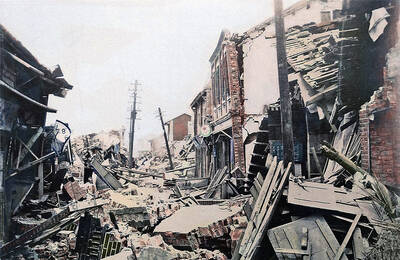
April 15 to April 21 Yang Kui (楊逵) was horrified as he drove past trucks, oxcarts and trolleys loaded with coffins on his way to Tuntzechiao (屯子腳), which he heard had been completely destroyed. The friend he came to check on was safe, but most residents were suffering in the town hit the hardest by the 7.1-magnitude Hsinchu-Taichung Earthquake on April 21, 1935. It remains the deadliest in Taiwan’s recorded history, claiming around 3,300 lives and injuring nearly 12,000. The disaster completely flattened roughly 18,000 houses and damaged countless more. The social activist and